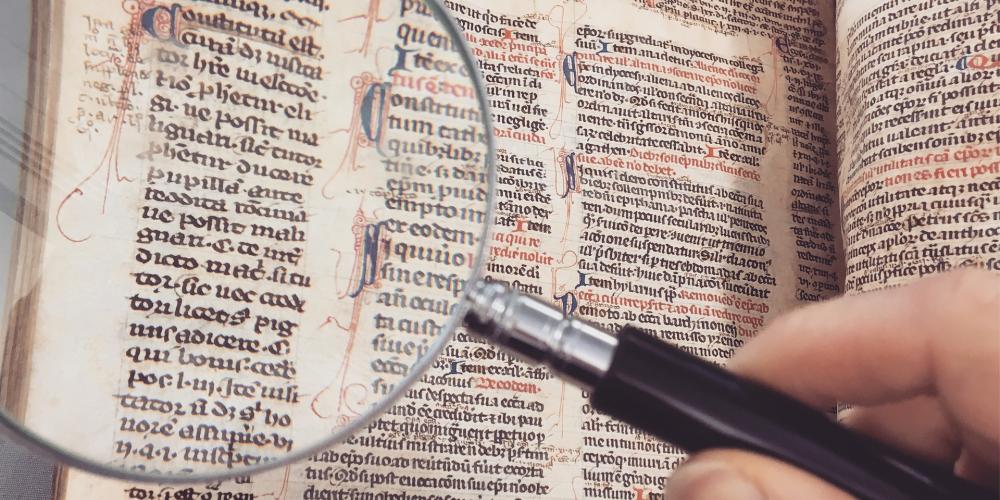
The Historical Sociolinguistics Young Researchers Forum (HSYRF) is funded by the Research Foundation Flanders (FWO) and is part of the Historical Sociolinguistics Research and Training Programme. This FWO Scientific Research Network (WOG) is directed by Rik Vosters (Center for Linguistics – VUB) and brings together a consortium of 4 Flemish and 15 international partner universities* and hosts a wide range of training and research activities for the vibrant historical sociolinguistics community. This event is directly aimed at early career researchers, so MA and PhD students, postdocs, and other young (at heart) researchers. It offers a mix of lectures, master classes and workshops on a variety of topics of interest to all those involved in historical sociolinguistics or language history in general.
The programme is exciting, with presenters from the UK, Sweden, the USA, and the Netherlands. The two methodological workshops will look at ‘indexicality, enregisterment and the third wave approach in historical sociolinguistics’ on the one hand, and on the other at ‘code-switching and multilingual practices using corpora’. While the first workshop, by Joan Beal (University of Sheffield), focuses on qualitative research methods and the second workshop, by Jukka Tyrkkö (Linnaeus University) delves into quantitative approaches, both allow the participants to gain hands-on training in state-of-the-art methodologies.
The master class by Douglas Biber (Northern Arizona University) will explore historical patterns of register variation and the role of register as a mediating factor for historical linguistic change. It will also look at specific methodological issues and highlight some major research findings that have emerged from previous corpus-based studies of historical register variation.
The event also includes a high-profile keynote address, known as the ‘Bad Data Lecture’. The title refers to the statement by the famous linguist, William Labov, who in 1994 stated that historical linguistics is essentially the “art of making the best use of bad data”: historical records are always incomplete, and we only have written sources available, even if we want to be able to discover something meaningful about spoken language. This year’s keynote by Marijke van der Wal (Leiden University) will appropriately emphasize the relationship between specific research questions and appropriate historical data. But it will also look at different approaches in view of methodological developments and current debates in historical sociolinguistics.
The two-day event will include a social programme on the evening of the first day and will involve a guided walking tour of Brussels and a group dinner downtown. The venue for dinner is a well-known Brussels literary café – Het Goudblommeke in Papier –, which used to be frequented by artists like René Magritte, Karel Appel, and Georges Remi (aka Hergé) of Tintin fame.
It is a truly international event with participants from Belgium, Croatia, Czech Republic, Estonia, France, Germany, the Netherlands, Norway, Poland, Serbia, Spain, Sweden, Switzerland, the UK and the US. The organisers are the VUB’s Prof. Rik Vosters (Center for Linguistics), Dr. Gijsbert Rutten (Leiden University), and PhD fellow Eline Lismont (VUB).
The next major event coming up on the historical sociolinguistics calendar is the annual conference, which takes place in Erlangen, Germany and is hosted by the Friedrich-Alexander Universität Erlangen-Nürnberg. The 14thSummer School in Historical Sociolinguistics will take place from 12-19 July 2020 on the north Frisian Island of Amrum, situated in the very far North-West of Germany.
More info on http://www.historicalsociolinguistics.be/
*WOG Partners include University of Gent (Belgium), University of Antwerp (Belgium, KULeuven (Belgium), Universitetet I Agder (Norway), Freie Universität Bozen (Italy), University of Cambridge (UK), Universität Duisburg-Essen (Germany), Europa-Universität Flensburg (Germany), Helsinki Yliopisto (Finland), Université de Lausanne (Switzerland), Universiteit Leiden (the Netherlands), Universidade de Lisboa (Portugal), Université de Luxembourg (Luxembourg), Johannes Gutenberg-Universität Mainz (Germany), Universidad de Murcia (Spain), Université de Namur (Belgium), Universität Salzburg (Austria), University of Sheffield (UK), and University of Wisconsin-Madison (USA).
